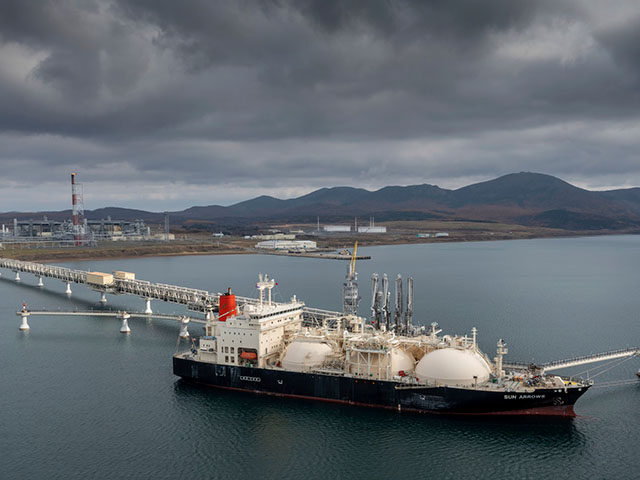Data from two top ship-tracking firms revealed that shipments of Russian crude oil to China and India, Russia’s top two buyers, rose by ten percent in May to hit record levels despite the Biden administration’s pleas to cut down on Moscow’s prodigious income stream by respecting sanctions and price caps.
The data from ship tracking firms Kpler and Vortexa found between 62 and 68 million barrels of Russian crude arriving in India last month, while China took in 41 million to 50 million barrels. China might have imported even more, as its refining companies seem eager to stock up on Russian products at discounted prices and reduced shipping costs, but the faltering Chinese economy is hindering energy demand.
China, India receive record Russian crude oil in May -data https://t.co/2U8eOUXBNC
— Reuters Energy and Commodities (@ReutersCommods) June 1, 2023
Reuters noted that Russia is pumping so much oil that Middle Eastern and African producers are losing a substantial amount of business to Moscow. The Organization of Petroleum Exporting Countries (OPEC) reportedly plans to once again ask Russia to reduce its supply to bring oil prices up at the June 4 cartel meeting, but the Russians are expected to refuse the request.
The Group of Seven (G7) nations, including the United States and the European Union, placed a price cap of $60 per barrel on Russian oil in December in a bid to reduce the amount of income Moscow can divert to its attack on Ukraine.
The G7 decided to keep the price cap at $60 in April, despite calls from some countries to raise the cap to reflect rising global oil prices, and others who wanted the cap lowered to cut deeper into Russia’s war finances. G7 members have rejected stronger bans on Russian oil because they would be difficult to enforce and could result in global energy price spikes that would hurt almost everyone except Russia.
The G7 and the U.S. Treasury Department said in April they would intensify their efforts to prevent Russia from selling oil above the price cap. The Treasury Department warned U.S. companies to avoid several specific cap-evasion schemes, which in some cases involved oil tankers tampering with their automated identification systems to conceal their activities.
A report from the Center for Research on Energy and Clean Air (CREA) in April warned that Russia’s big oil customers are “laundering” the oil by reselling some of it to G7 companies that would normally be restricted from buying it. CREA estimated that some $46 billion in forbidden Russian oil products have been laundered through buyers in China and India, as well as other big Russian customers like Turkey, Singapore, and the United Arab Emirates.
China and India 'launder' Russian oil and resell it to Western nations that sanctioned Moscow, study says https://t.co/9BlTvSXylW
— Insider Business (@BusinessInsider) April 19, 2023
CREA also found that 56 percent of Russian crude oil shipped to these third-party “laundromat” companies was carried on vessels owned or ensured by companies in nations that enforce the price caps on Russian oil.
“This is currently a legal way of exporting oil products to countries that are imposing sanctions on Russia as the product origin has been changed. This process provides funds to Putin’s war chest,” the report said.
CREA cited Kpler data to contend that Russian exports returned to pre-war, pre-sanctions levels as of April, although the discounted prices meant Russia was making less money on the oil. The International Energy Agency (IEA) estimated in April that Russia’s total oil revenues are about 27 percent lower than they were before the invasion of Ukraine.
A Reuters market analysis on Monday suggested that some of Russia’s exports “may be at risk in coming months” as concerns about the oil “laundromats” critiqued by CREA bubble up through the supply chain. Oil purchases and shipping are arranged months in advance, so in another month or two, the concerns about price cap evasion voiced by the G7 nations in April could begin having a real effect on Russia’s export volume.
“This may lead to some slackening of demand for India’s refined products, which in turn is likely to force another round of re-aligning product flows as the oil industry battles to continue to use Russian crude and products,” the analysis said.
Asia's crude imports jump in May as China, India suck up Russian oil – column by @ClydeCommods https://t.co/nY0FHLT0ac
— Reuters Energy and Commodities (@ReutersCommods) May 30, 2023

COMMENTS
Please let us know if you're having issues with commenting.